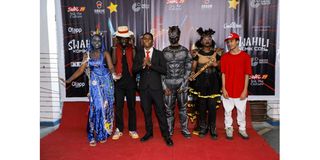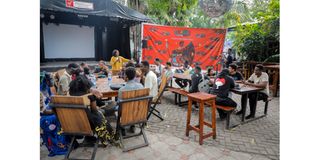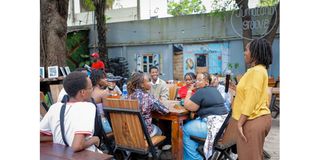Swahili Komik Con: Where geek culture finds its voice in swahili

What you need to know:
- You get Swahili Komik Con (SWKC), a celebration of fandom grounded in local identity, where pop culture doesn’t trickle down from the West but rises from the streets, sketchbooks, and screenplays of Dar es Salaam.
Dar es Salaam. What happens when comic lovers, cosplayers, gamers, and storytellers from across East Africa stop waiting for permission to belong—and instead build their own world?
You get Swahili Komik Con (SWKC), a celebration of fandom grounded in local identity, where pop culture doesn’t trickle down from the West but rises from the streets, sketchbooks, and screenplays of Dar es Salaam.
This year’s edition, dubbed SWKC25, was more than a convention—it was a cultural turning point, a loud, joyful declaration of what organisers call “inking the culture”.
Held over two days in the heart of Tanzania’s commercial capital, the event transformed into a creative playground where fans, creators and cultural thinkers gathered not just to consume content, but to contribute to it—on their own terms, and in proudly Swahili ways.

“We didn’t just want to gather fans; we wanted to build a playground where East African creators, illustrators, and geeks could feel fully seen,” said SWKC Gallery Manager and Business Development Lead, Mr Idris Mshoro.
“SWKC is about rewriting the script—not just in comics, but in how we connect, learn, and build together,” he added.
This year’s convention attracted more than 186 attendees from nine countries, including Tanzania, Kenya, Denmark, Japan, France, the United States, Iran, and the UAE.
From the outside, it may seem like a niche gathering of comic books and costumes.
But to those on the inside, it was something more: a vibrant declaration that African fandom is not only ready to be counted—but ready to lead.

At the core of SWKC’s impact was its programming. Absent were the rigid, top-down panel discussions that dominate many conventions.
In their place were dynamic debates, community Q&A’s, and fan-led forums where the lines between speaker and audience blurred.
Discussions ranged from the future of East African animation and the economics of cosplay to storytelling strategies that allow Swahili-language content to resonate—even beyond traditional fandoms.
From cosplay competitions and comic readings to Marvel vs DC face-offs and conversations about reimagining Demon Slayer through Tanzanian folklore, the event proved that geek culture doesn’t have to be imported to be authentic.
For many participants—especially the youngest—the weekend served as a radical invitation: to see themselves not only as fans of someone else’s narrative, but as originators of their own.
In a world where only one in every hundred comic books on the market is written in an African language, SWKC posed a provocative question: What if that changed?





